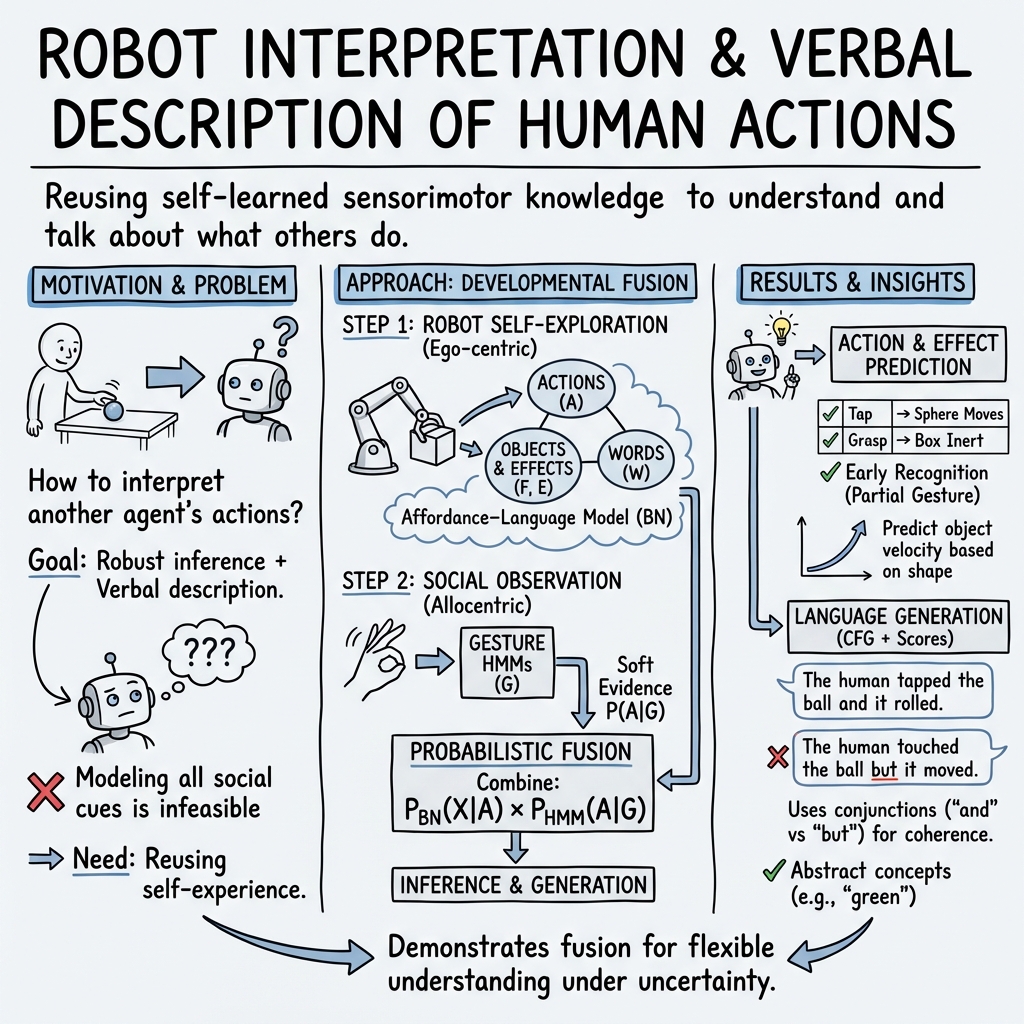Beyond the Self: Using Grounded Affordances to Interpret and Describe Others' Actions
Abstract: We propose a developmental approach that allows a robot to interpret and describe the actions of human agents by reusing previous experience. The robot first learns the association between words and object affordances by manipulating the objects in its environment. It then uses this information to learn a mapping between its own actions and those performed by a human in a shared environment. It finally fuses the information from these two models to interpret and describe human actions in light of its own experience. In our experiments, we show that the model can be used flexibly to do inference on different aspects of the scene. We can predict the effects of an action on the basis of object properties. We can revise the belief that a certain action occurred, given the observed effects of the human action. In an early action recognition fashion, we can anticipate the effects when the action has only been partially observed. By estimating the probability of words given the evidence and feeding them into a pre-defined grammar, we can generate relevant descriptions of the scene. We believe that this is a step towards providing robots with the fundamental skills to engage in social collaboration with humans.
Paper Prompts
Sign up for free to create and run prompts on this paper using GPT-5.
Top Community Prompts
Collections
Sign up for free to add this paper to one or more collections.
